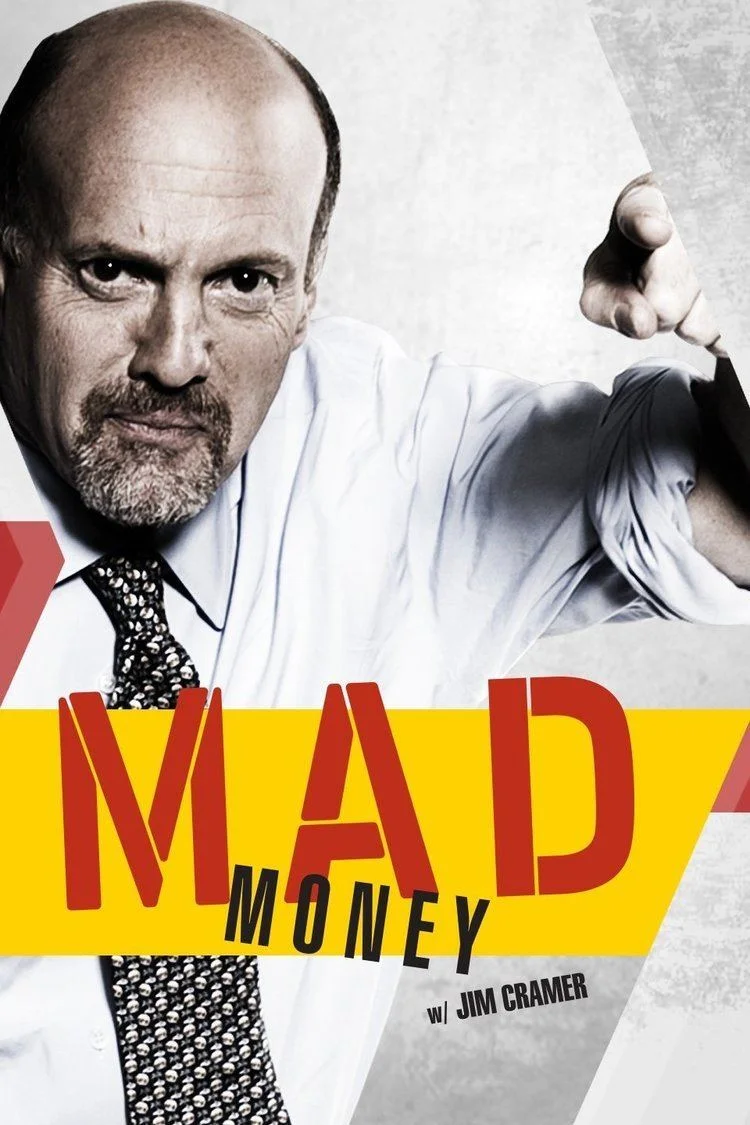Let's get one thing straight about Jim Cramer. The guy isn't a stock guru. He's a television character.
And a damn compelling one at that.
Turn on CNBC and watch Mad Money. It’s a sensory assault. Imagine a stock market broadcast designed by a Vegas slot machine—blaring sound effects, frantic camera cuts, a guy in rolled-up shirtsleeves screaming into the lens like his hair is on fire. He’s smashing buttons that trigger cowbells and train whistles. He’s yelling "Boo-yah!" He's the human embodiment of a Red Bull-and-vodka buzz, a manic tour guide through the chaos of Wall Street. The entire spectacle of the `mad money show` is engineered to make you feel something, anything, other than the cold, terrifying reality of risking your own money.
But here’s the question that never seems to get asked enough: what is Mad Money, really? Is it an investment advice show, or is it just the most successful piece of financial performance art ever created?
The Ivy League Brawler Who 'Gets' You
Before he was the `mad money host`, Jim Cramer | Biography, Mad Money, & Facts | Britannica Money - Britannica was the definition of an insider. We're talking Harvard, then Harvard Law. A stint at Goldman Sachs, the vampire squid itself. Then he ran his own hedge fund, Cramer Levy Partners, reportedly raking in over $10 million a year. This ain't some scrappy underdog who pulled himself up by his bootstraps. This is a man molded and rewarded by the very system he now presents himself as helping the little guy navigate.
So why the shtick? The screaming, the sound effects, the whole "I'm on your side!" routine feels... practiced. It’s a costume. He's playing the part of the Wall Street renegade who's breaking the code for you, the retail investor.

He's the carnival barker standing just outside the Wall Street tent. The game inside is impossibly complex, rigged in a thousand ways you can't see, and run by people who speak a different language. But the barker—he simplifies it. He turns it into a simple game of chance, of guts, of emotion. He points at a stock and yells, "This one's hot!" He gives you permission to feel, to get excited, to get angry. He's not selling you a discounted cash flow analysis; he's selling you a story. A simple, loud, and intoxicating story. But does a good story actually make you money?
The Teflon Man of Financial Media
Then 2008 happened.
This is the chapter his fans always want to forget and his critics can never let go of. The lead-up to the global financial crisis was Cramer’s moment of truth, and he flunked it. Spectacularly. The infamous clip of him, just months before the collapse, screaming that Bear Stearns was fine—"They know nothing! They know nothing!"—is forever etched into the internet's memory. It was a catastrophic call that cost people who trusted him everything.
The fallout culminated in what I can only describe as a public vivisection at the hands of Jon Stewart on The Daily Show. Stewart wasn't laughing. He methodically dismantled Cramer, not just as a host, but as a symbol of a financial media ecosystem that had prioritized entertainment over duty. Stewart accused him of selling a fantasy, of treating life savings like a game. And for a few painful minutes, the `jim cramer mad money` persona cracked, and all you saw was a man who had been caught.
And here’s the part that really gets me. Nothing happened. The controversy flared up, he took his licks from Paul Krugman and Nouriel Roubini, and then... the show just went on. His popularity, according to the records, didn't even take a lasting hit. He failed his audience. No, 'failed' is too soft—he actively misled them into a woodchipper, and they still tuned in the next week. It's wild when you think about it; the `mad money movie cast` with Diane Keaton and Queen Latifah was a work of fiction about robbing the Fed, but somehow the reality of Cramer's show feels even more unbelievable. How does a man survive a screw-up of that magnitude with his credibility intact? What does that say about what the audience actually wants from him?
They don’t want a sober analyst. They want a show. They want a lottery ticket. They want someone to yell with, to cheer for, and maybe to blame when it all goes wrong. Its a performance, and as long as the curtain goes up every night, the crowd will keep coming back for more.
He's Selling Hope, Not Stock Tips
Let's be brutally honest. The real product of the `mad money with jim cramer` show isn't alpha. It isn't sage financial wisdom. It's catharsis. It's the feeling that you, too, can participate in the great, terrifying casino of the stock market and maybe, just maybe, hit the jackpot. He's not selling you a strategy; he's selling you a feeling. And in a world that feels increasingly rigged, maybe that feeling is the only thing people have left to buy.
